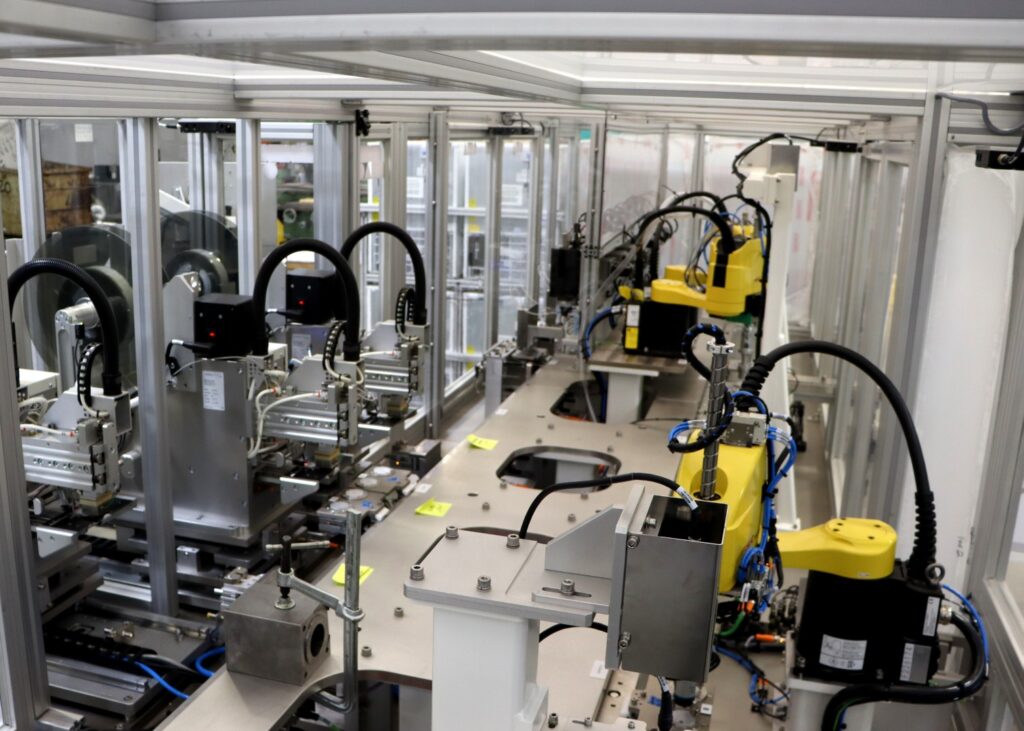What the right automation partner can do for your business.

Scaling a manufacturing business is no easy task. With these tips in mind, it’ll be much easier to grow your operations at a manageable rate.
The manufacturing industry is a dynamic and competitive landscape, and for businesses to thrive, they must not only adapt but also strategically plan for growth and scalability. Whether you’re a small startup or an established player, here are some tips on how to grow and scale in the manufacturing industry.
Invest in technology and automation:
Embrace technological advancements and automation to increase efficiency and productivity. Implementing robotics, Internet of Things (IoT) devices, and smart manufacturing technologies can streamline processes, reduce costs, and enhance overall operational performance.
Data-driven decision-making:
Leverage data analytics to make informed decisions. Analyzing data on production, supply chain, and customer behaviour can provide valuable insights that aid in optimizing operations and identifying areas for improvement. Make use of Key Performance Indicators (KPIs) to measure success and guide strategic decisions.
Flexible and agile operations:
The ability to adapt quickly to market changes is crucial for growth. Establish flexible manufacturing processes and automated systems that can easily accommodate shifts in demand or changes in product specifications. This agility allows you to respond promptly to market trends and customer needs.

Strategic partnerships:
Forge strategic partnerships with suppliers, distributors, and even competitors. Collaborative relationships can lead to shared resources, expanded market reach, and opportunities for innovation. Pooling resources with other players in the industry can contribute to mutual growth.
Employee training and development:
Invest in the skills and development of your workforce. A well-trained and motivated team is essential for innovation and efficiency. As technology evolves, providing ongoing training ensures that your employees can adapt to new tools and processes, contributing to the company’s overall growth.
Quality assurance and continuous improvement:
Maintain a strong focus on quality assurance. Consistently delivering high-quality products builds trust with customers and enhances your reputation in the market. Implement continuous improvement processes to refine operations and stay ahead of industry standards.
Diversify product offerings:
Consider expanding your product range or diversifying into related markets. This not only broadens your customer base but also helps mitigate risks associated with dependence on a single product or market segment. Research and identify opportunities for product innovation and expansion.

Sustainable practices:
Embrace sustainability in your manufacturing processes. Consumers and businesses are increasingly conscious of environmental impact, and adopting sustainable practices can be a competitive advantage. This may involve energy-efficient operations, waste reduction initiatives, or eco-friendly product designs.
Global market expansion:
Explore opportunities to expand into international markets. Conduct thorough market research to understand the regulatory landscape, cultural nuances, and demand trends in different regions. Establishing a global presence can open up new revenue streams and diversify your customer base.
Financial planning and risk management:
Implement robust financial planning and risk management strategies. Anticipate potential challenges and have contingency plans in place. Prudent financial management ensures that your business is well-positioned to weather economic fluctuations and challenges in the manufacturing industry.
Scaling in the manufacturing industry requires a combination of strategic planning, technological innovation, and a commitment to quality and efficiency. An experienced automation expert can support your goals across almost all of the important points above. When working with the right strategic automation partner, businesses can position themselves for sustainable growth, navigate challenges effectively, and remain competitive in the ever-evolving manufacturing landscape.
